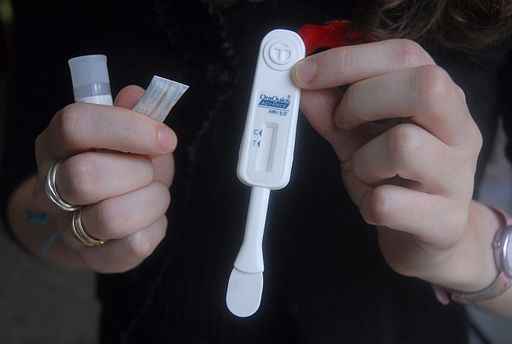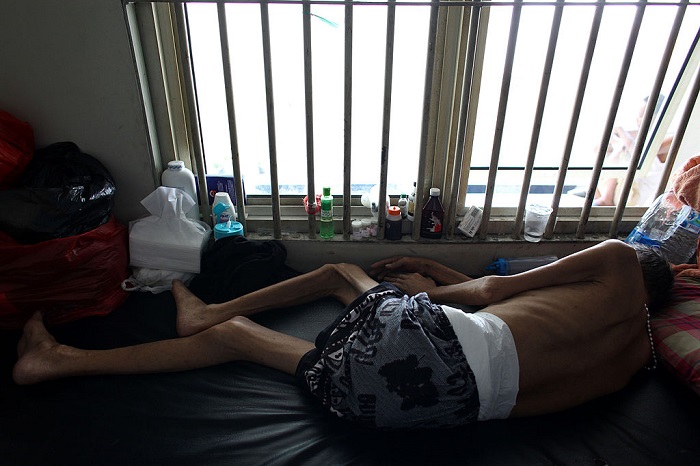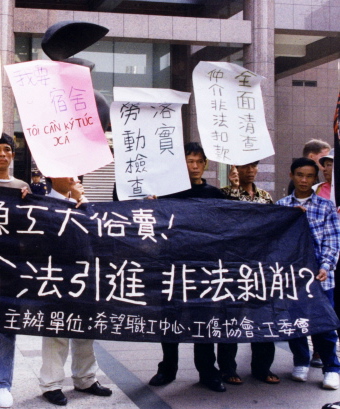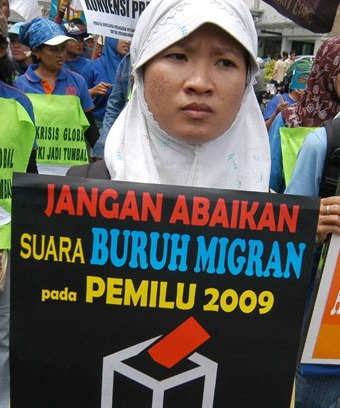Though HIV awareness is improving, the stigma makes testing less comfortable and treatments less popular
Versi Bh. Indonesia
Azalia Muchransyah
My first known encounter with a person living with HIV was in prison. It was 2013, and I was one of several research assistants working on HIV healthcare in Jakarta’s prisons. I had earned my master’s degree, I had taken classes on sexual and health psychology as an undergraduate and I had received professional training on HIV/AIDS care. I was thus confident in my knowledge of HIV. But I quickly realised all my perceptions of people with HIV were biased.
The first person I met during my research was a young, fit and healthy-looking man. If he hadn't had a prison uniform on, I would have mistaken him for a doctor. When he identified himself as someone with HIV I couldn’t hide my shock.
I realised in this moment that my image of a person with HIV was someone who looked skinny, sick and unkempt, not clean shaven and composed. I realised also that if someone like me, worldly and educated, stereotypes people with HIV in that way, most Indonesians would do the same.
Another stereotype held by many Indonesians is that people with HIV contract it through unsafe sex and injecting drugs. These activities are looked down upon in Indonesia so there is little sympathy for people with HIV. Moreover, people don’t understand how HIV is transmitted. Often people think you can get HIV through a handshake or sharing a plate of food. As a result, most Indonesians are afraid to meet, let alone touch, a person with HIV.
In fact, HIV can only be transmitted through certain bodily fluids. This may indeed occur through sharing needles or having unsafe sex but it can also be transmitted by blood transfusions or by a mother to her baby in-vitro, through birth or through breast milk.
Compulsory testing
During this same research project, I experienced my first HIV test. The prison had received a lot of HIV test kits and, after testing inmates, many test kits were left unused. As the kits were about to expire, the doctor asked if we wanted to get tested. An American nurse who was part of the research team performed the test. He asked me why I wanted to get tested, if I had any concerns and what my health was like and finally he sought permission to swab my mouth, which was how the HIV test was administered. I felt at ease during the whole procedure and I learnt a lot about best practice regarding conducting an HIV test.

The second time I took an HIV test was just before I got married. My fiancé and I went to a large, expensive hospital in Jakarta and took the premarital test package which included fertility tests, blood tests and an HIV test. However, unlike my first experience, the nurse conducting this set of tests made me feel very uncomfortable. As she took my blood, she asked me if I would cancel the wedding if either of us had fertility issues or tested positive for HIV. This question took me by surprise; I found it very rude and inappropriate.
The third time I was tested for HIV came about because the Bogor municipal government, which governs the area where I lived, passed a law requiring all couples to take an HIV test upon submitting marriage documents to the registry office. This law follows on from the Minister of Health’s Regulation No.74/2014 which requires that all men and women be tested for HIV. Only the puskesmas (pusat kesehatan masyarakat, or public health centre) is authorised to conduct this test so my previous ones were not considered valid by law. The standard procedure is to tell each person their results in private and not disclose them to their partner. I didn’t ask what people do if they find out their partner is HIV positive or has infertility issues. While this time the experience was not as awful as the second one, it was not pleasant. The nurse took our blood without saying a word to us and told us to wait outside. After an hour and a half our names were called and we were given a card. No one explained what the information on the card meant. Luckily, I understood how to read the health information: we were both negative. But a layperson would not know whether they have HIV or not.
It is good that Indonesia has recognised the need for HIV testing however the test needs to be administered in a sensitive and appropriate way. At the moment, even getting the test carries a stigma. Another positive step is Indonesia now guaranteeing free and universal access to antiretroviral therapy drugs (ART), however, of the estimated 630,000 adults living with HIV in Indonesia, only 10 to 20 per cent are accessing ART. A key reason people don’t access these drugs is because of the stigma surrounding HIV.
Combating stigma
In Indonesia HIV is associated with being a drug user and having sex outside marriage. It follows that, in order to increase the number of people seeking testing and treatment and reduce the incidence of HIV, it is necessary to combat the stigma surrounding those practices. One way of reducing stigma is through education. However, the discussion about providing sterile syringes is problematic as it can be misunderstood as encouraging drug use. Further, sex outside marriage is regarded as sinful and therefore it is difficult to talk about. There is no proper sex education in Indonesian schools. Indeed, in 2017, a sex education book for children was banned because parents thought the content vulgar.
We have a lot of work to do if we want to remove the stigma from having HIV/AIDS. HIV testing should be available free of charge in hospitals, health centres and clinics, including those at schools, colleges, universities and prisons, in order to properly address the epidemic. We also need to train healthcare providers such as doctors and nurses to conduct appropriate testing without passing judgement. This has not been done. Education through media such as games or films can also be utilised to help prevent HIV-positive people, especially children, being shunned.
Azalia Muchransyah (azaliapr@buffalo.edu) is a PhD student at the University at Buffalo and recipient of a Ristekdikti-Fulbright scholarship, awarded in 2017. See her website to find out more.















